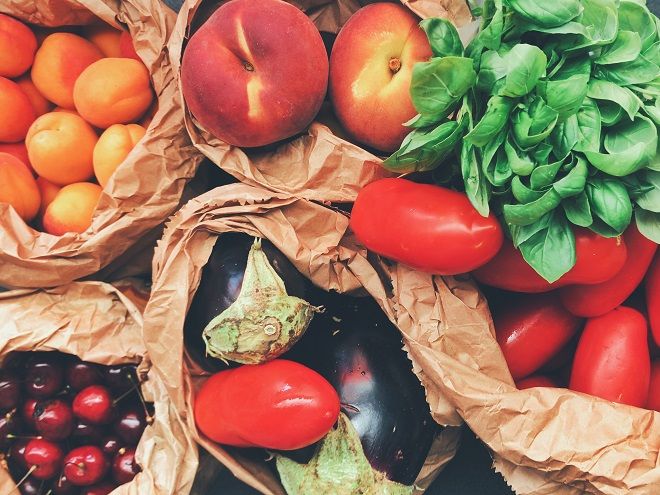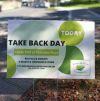Food: Too Good To Waste. Let’s Do Better Together!

By the Bronxville Green Committee
Feb. 23, 2022: We’ve all heard the wasted food stats in this country. In summary, 40% of the food grown in the U.S. is wasted. If you pause, it’s shocking. And while we all love our food and don’t intend to waste, sometimes we do. By shopping smart, storing food properly, understanding food labels and recycling our food waste, we can make changes in our daily lives that significantly lower our environmental impact. We don’t have be perfect, just do a little bit better!
Wasted food…
-Uses natural resources and depletes the environment while producing no tangible benefits.
-Put in landfills, it releases methane, a potent greenhouse gas that contributes to climate change.
-Takes money from our wallets. The average family of four loses $1800 in wasted food each year.
The good news? By changing a few simple habits, we can reduce wasted food!
1) Smart Shopping
-Meal plan for the week before shopping
-Choose fresh produce that will last longer – see tips HERE.
-Add frozen fruits and vegetables to your cart – they’re less expensive, already chopped, and ready to use in between shopping trips
-Buy “ugly” vegetables. Retailers say they throw out misshapen fruits and vegetables because they think their customers won’t buy them. Prove them wrong! The “misfits” are nutritious and safe to eat.
2) Smart Storage
-Declutter your fridge on a weekly basis and store items properly to ensure they’ll last longer – learn more on the USDA app
-Create an “Eat First” bin in the frig for food that’s getting old
-Freeze some food now if you might not eat it soon enough; be sure to label the container with the contents and date.
-Wash and chop fruits and vegetables as soon as you arrive home from shopping, so that they’re ready to use for fast meals and snacks.
3) Learn What Labels Mean
-“Sell By” is the date past which food vendors must stop displaying and selling the item. It is still usually perfectly safe to eat.
-“Best If Used By” is an industry term to indicate best flavor and quality. It is still usually perfectly safe to eat.
4) Recycle your food waste
When you can’t avoid wasting food, and for all those peels, pits, and husks, please recycle! Join Bronxville’s growing Food Scrap Recycling Program, a residential composting program. The Village offers a kit that includes everything you need for easy kitchen collection of all your food scraps and waste. Learn more about this program, which is already proven and popular in many Westchester municipalities, and sign up HERE.
The Bronxville Green Committee is a volunteer organization that is part of the Village of Bronxville. We work to propose and implement environmentally sustainable programs in our community. Please visit our website or contact us for more information!
Editor's note: As a public service, MyhometownBronxville publishes articles from local institutions, officeholders, and individuals. MyhometownBronxville does not fact-check statements therein, and any opinions expressed do not necessarily reflect the thinking of its staff.
Sustainable Living Directory
The Bronxville Green Committee is a volunteer organization under Village government. We work with the Trustees and Village staff on programs that promote clean energy initiatives and sustainable ways of living. Our programs include The Bronxville Giving Garden, a community garden whose produce is donated to local groups; Take Back Day, when we collect items to be recycled; and Pollinator Pathways, which encourages adding native plants to our gardens. We believe everyone can make a difference by adopting simple, sustainable practices in daily life so we can work together to protect what we love -- our families, our homes and our town.
















